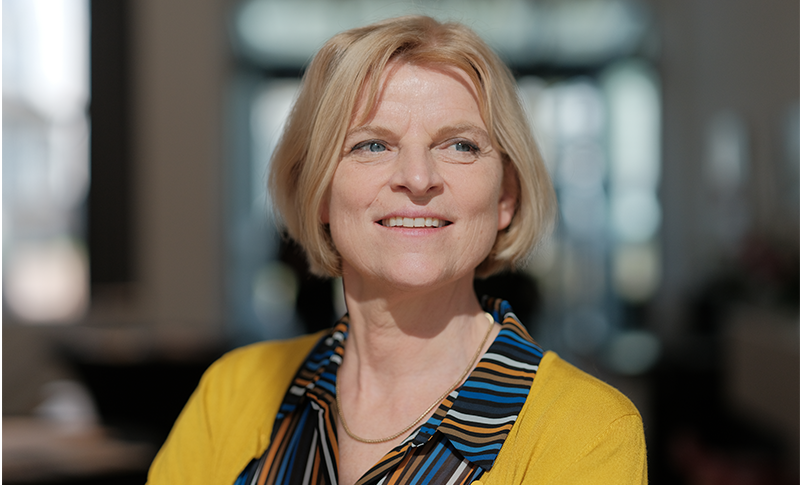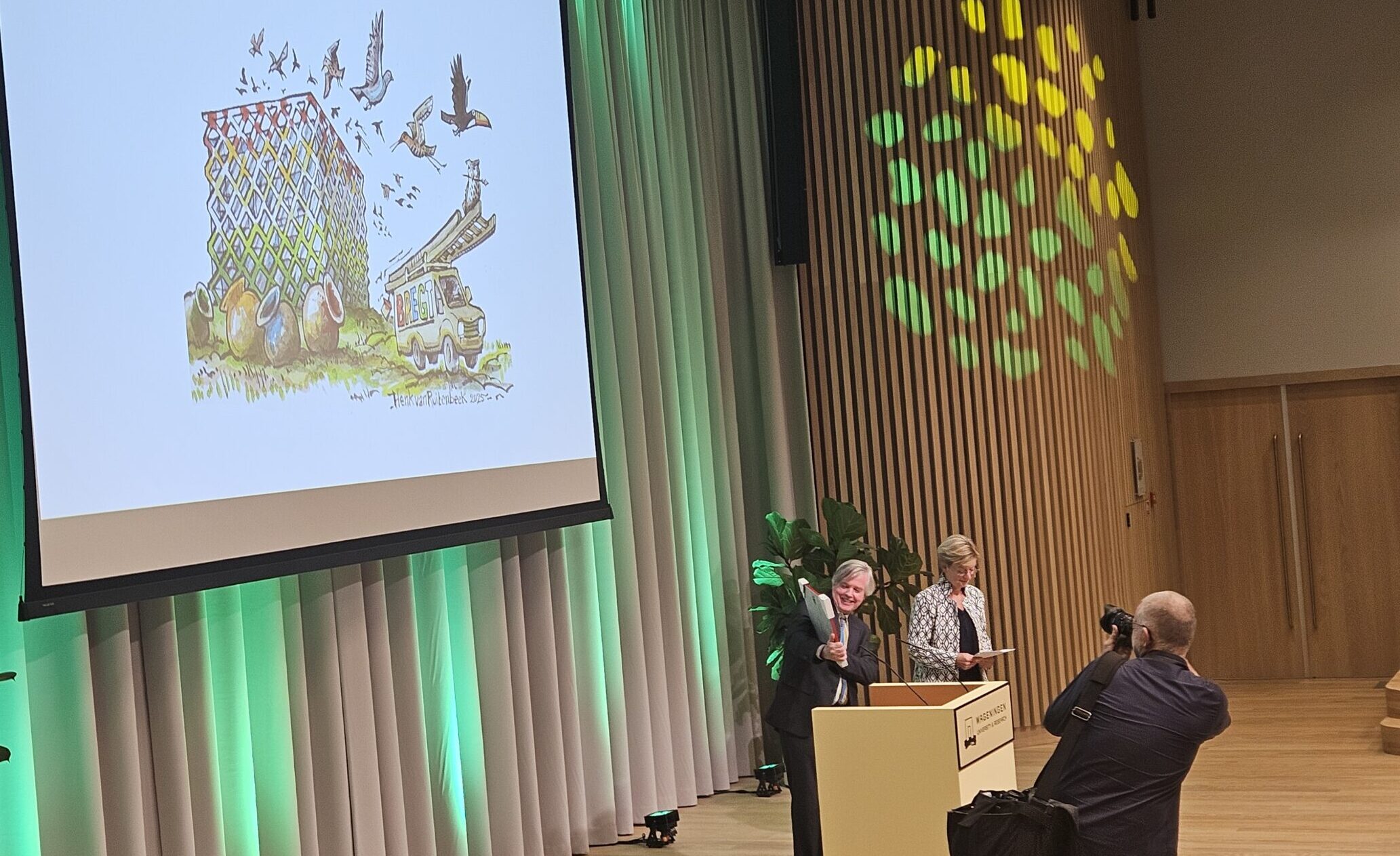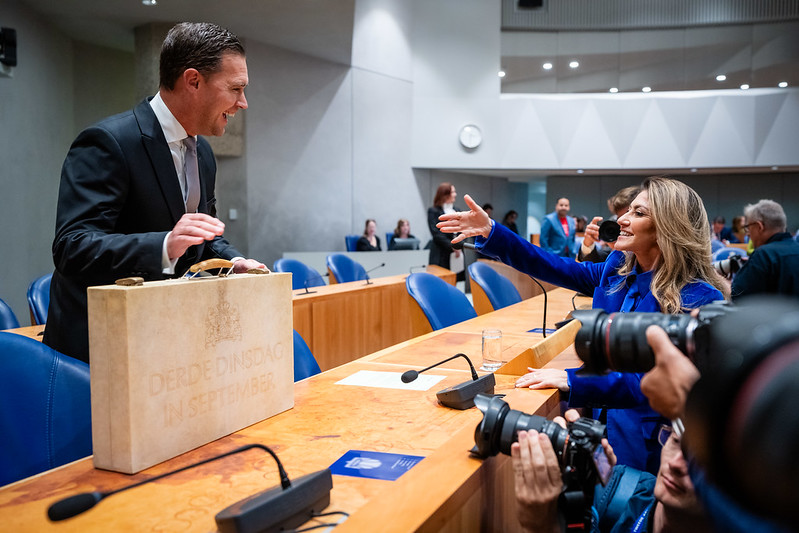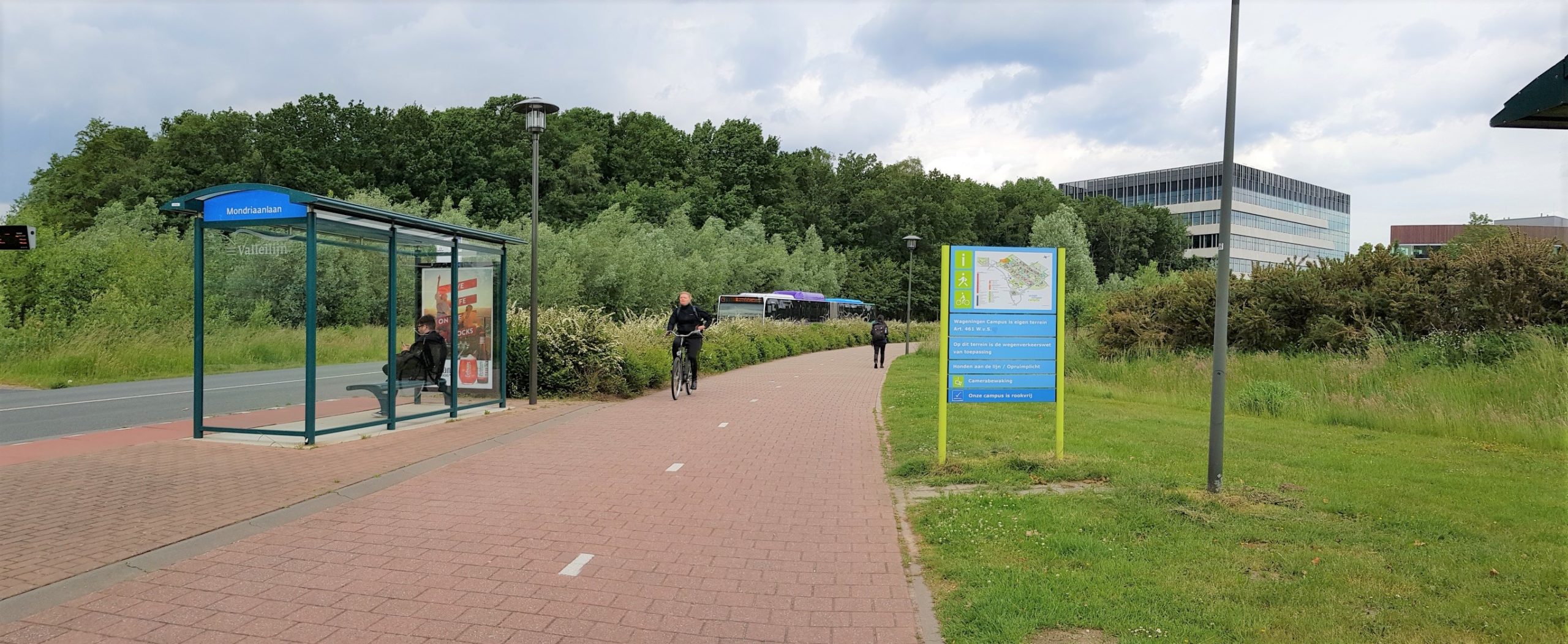A new leader, a new direction. WUR President Sjoukje Heimovaara is starting to reveal her ideas, and share them within the organization.
It was immediately apparent that this year’s opening of the academic year at the beginning of September was different from usual: no external speaker and a sensitive subject: planetary boundaries, about the limits of what the earth can take. This was the formal kick-off for Heimovaara’s presidency. At the moment, she is still meeting WUR staff to help her settle into her new position, but the course she aims to navigate is becoming clear.
From the start of the interview, Heimovaara lets her thoughts and ideas flow. ‘I was just having a discussion about online meetings. A meeting in New York? Do it online. We mustn’t fly to Bogota or Beijing for just for a meeting. There is no need for that.’
How far have you got with forming your ideas?
‘I am still mainly listening carefully. To scientists, teachers, my colleagues on the Executive Board, and the Supervisory Board. It is my conviction that our staffing policy and our work culture must keep up with the times. A report has been published by the Royal Netherlands Academy of Arts and Sciences (KNAW) about personal safety in the workplace. We are not doing worse than others, but people here do work in relationships of dependency — students with lecturers, PhD students with supervisors, tenure trackers with professors. Not everyone can handle that. That’s not Wageningen’s fault, but we must make sure it’s thanks to Wageningen that it doesn’t go wrong.’
How?
‘We must create a culture in which we talk to each other, about personal safety for instance, and in which it is clear what to do if you don’t feel safe. I am generalizing, but there are places where people are afraid to do that. On campus on 22 September a play addressing these issues will premiere. It is anecdotal, but as you watch, you recognize the abuses. For instance, someone who wonders at the end of his career: ‘Why did I let this happen? I think tomorrow I will tell that colleague that he shouldn’t shout like that.’
‘We should also pay attention to unconscious dependence. Everyone is dependent – on grants, bringing in projects, bringing in funding. It is difficult to say “no” to a client or superior who asks you to change the way you’ve expressed something. And researchers are sometimes asked to do that. Or a report is ready, but we are asked to put it aside for another three weeks. That happens.’
A report shelved for three weeks?
‘It happens that the results of a research are not convenient for a client at that moment and that they want to shelve the report. The KNAW did a study of the influence of clients: one quarter of researchers in the Netherlands experience pressure. In at least half of the cases, it comes from government bodies, but it also comes from other clients. And Wageningen has its share of cases, and of course we are opposed to this. At the same time, one condition for project approval is that the researcher seeks a company that supports research. It is nice if that works out, but there is pressure on the researcher to answer certain research questions and not others. That is a grey area. I want us to feel and state more clearly that we do not want this at WUR. Our independence together with our creativity and intellect is our biggest asset.’
We must move with the times, you say. How?
‘An example: I was talking to professors and we were discussing the number of publications you have to have to your name to obtain a PhD. I find that rather rigid. Because a PhD is a test of competence, not a test of the ability to publish. If a researcher does all the right things, but the results don’t get published, it should still be possible to obtain a doctorate, in my opinion. And that clashes with the idea of a mandatory minimum number of publications.’
That is a fundamental change.
‘That is how we were raised, to focus on science and how you make headway . But there is more. Some young researchers – again, generalizing – want other things in life. They say: that professorship is all very well but it’s going to cost me too much time, and I want to see my children grow up. At some point, we’ve got to accept that we are driving each other crazy with the rat race. If we keep on running, the rest will have to keep up. How do we arrive at a situation in which we pay more attention to balance?’
Do you know how?
‘No one is forcing us to keep on running. There is a certain pressure in education, and timetables and tests aren’t really negotiable. We are currently taking on support staff to ensure a healthier work environment, and there is money for that. But then we have to actually use that money to hire people who provide teaching support and not say: that’s a good opportunity to hire more tenure trackers, because then we can publish more’.
What happens if we stop ‘running’?
‘Then you get some peace. At present, for example, every new tenure tracker has to come up with a new course. Is that because students are asking for it? No, you must do it because it is part of how you prove that you are capable of it. We are doing very well in education, but like this we quietly incapacitate our staff and that is contrary to our aim of sustainable employability. This tanker will have to change course slightly so that we have another generation of happy and motivated employees working at WUR.’

 Photo Duncan de Fey
Photo Duncan de Fey 


What a refreshing perspective!
Hear Hear !
Really heartening! I’m looking forward to individually and collectively contributing towards the reimagining and enacting of a more humane workplace and place of learning that Sjoukje has evoked.
All my support!